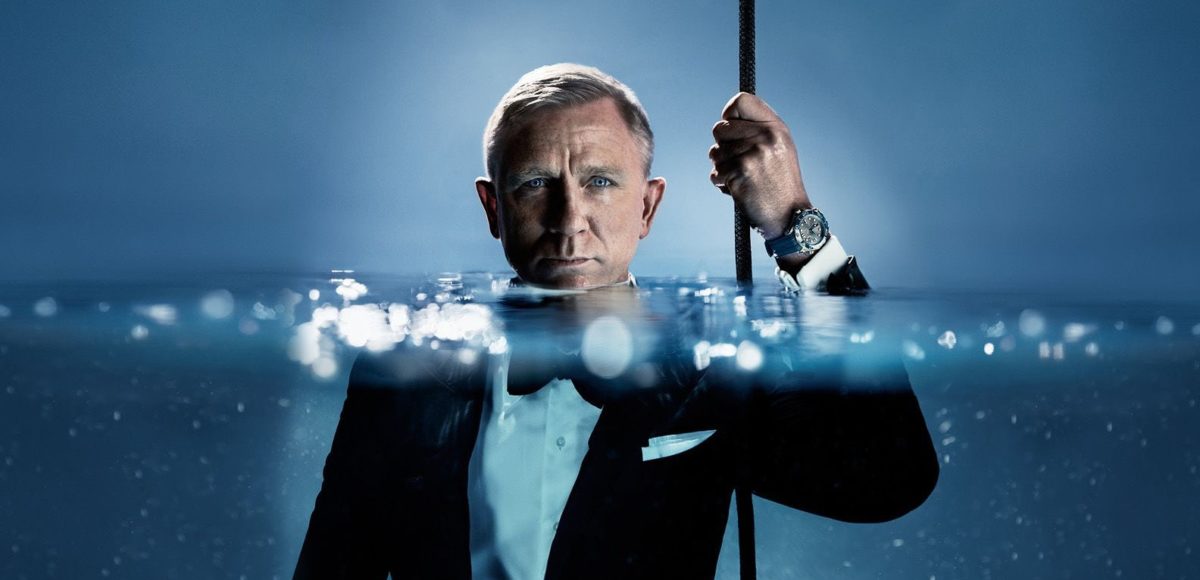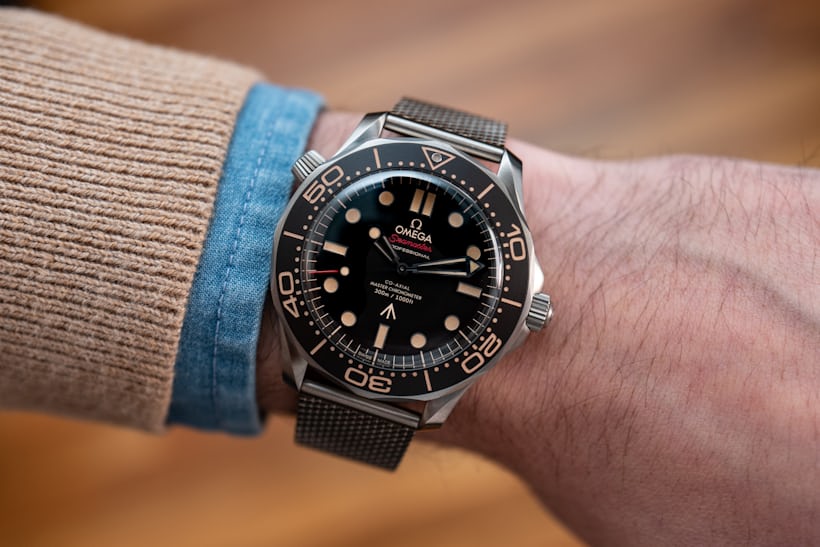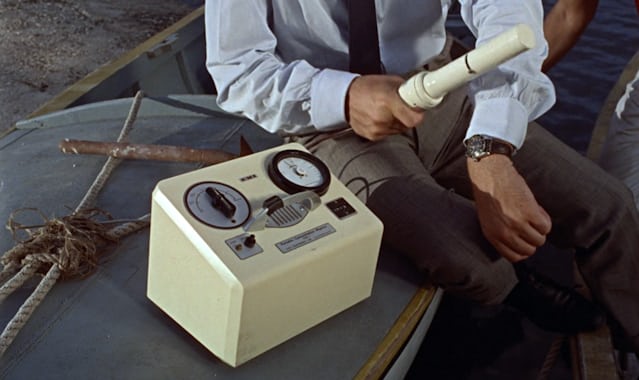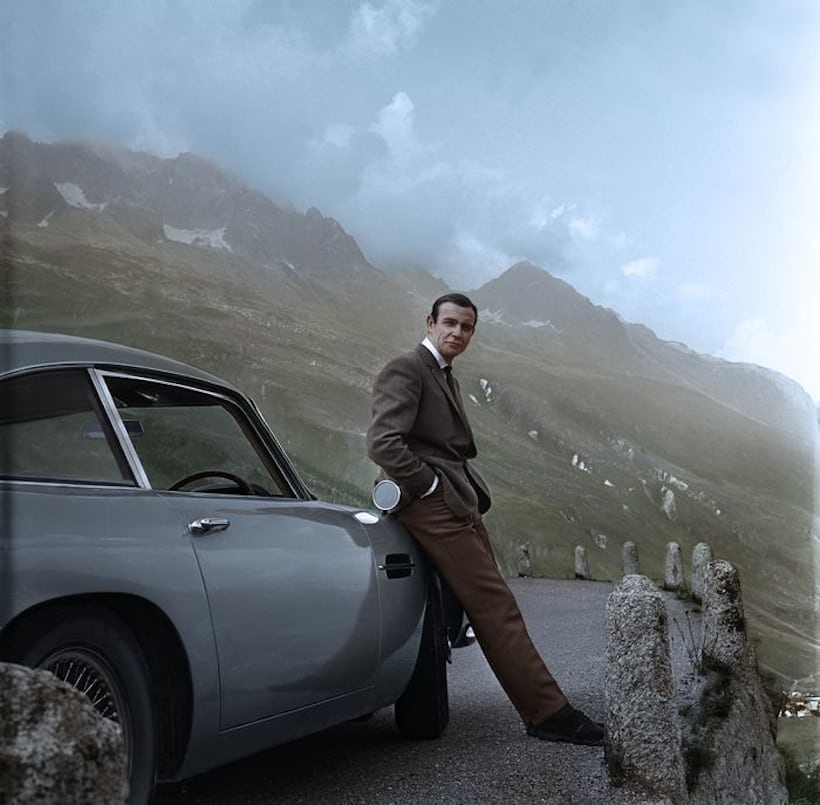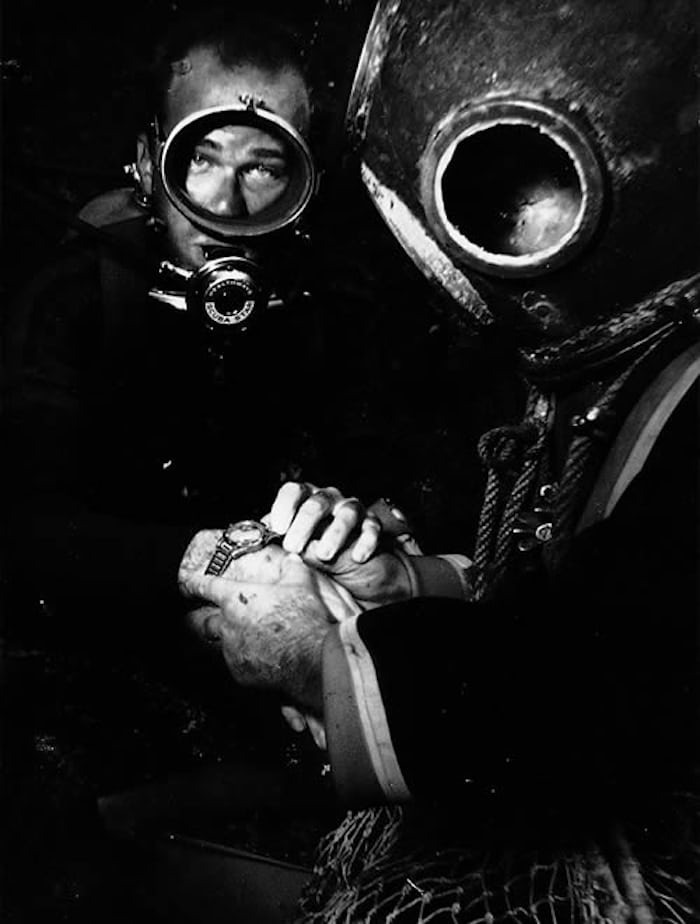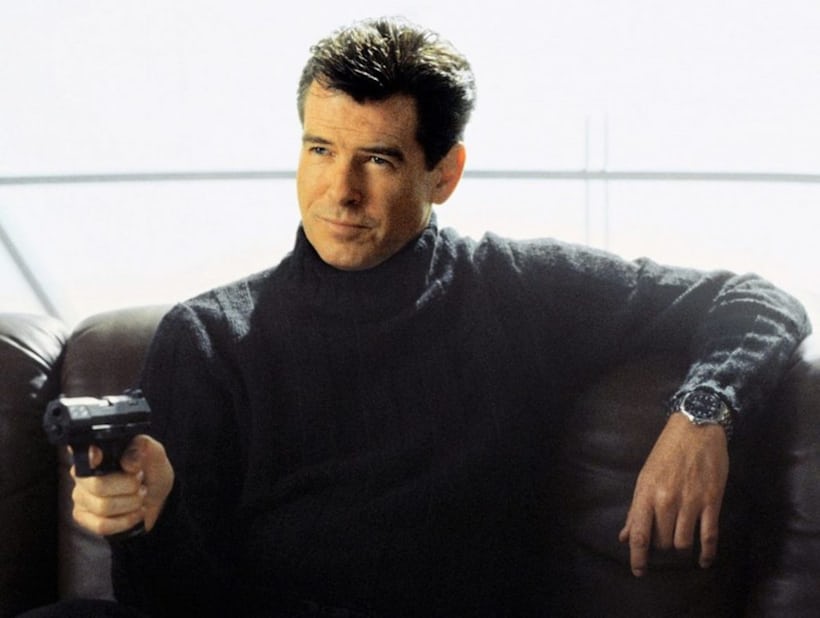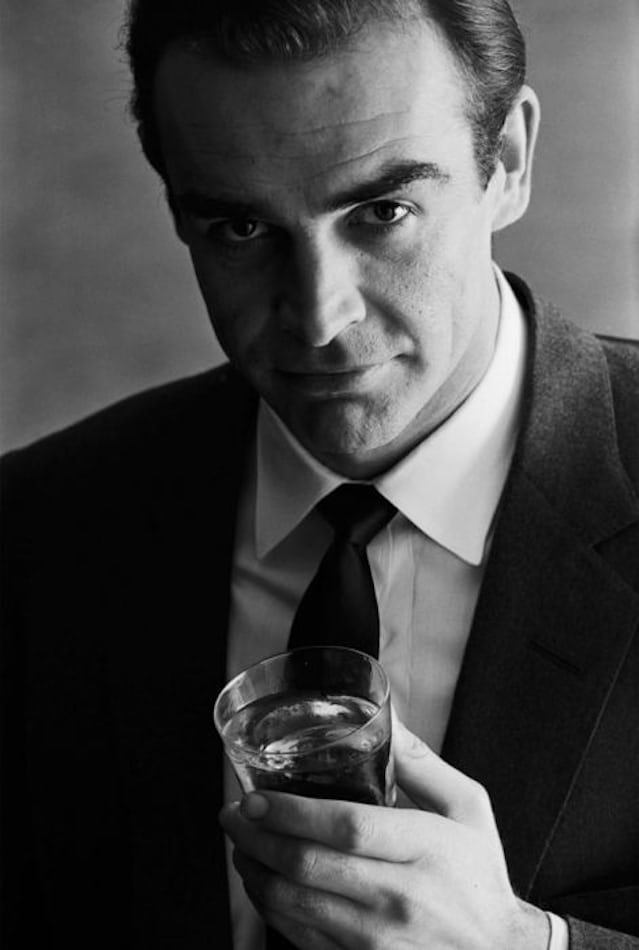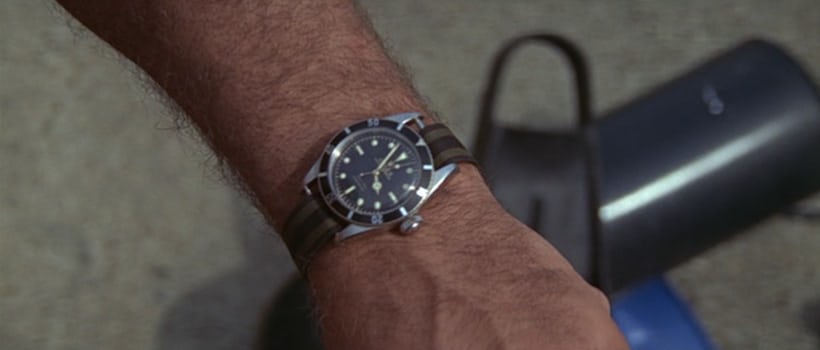In-Depth: The Watches Of James Bond (And Why They Matter)
Exploring the enduring interest in how an action-movie hero tells time.
Originally published by Jason Heaton on HODINKEE, December 13th 2019
Bond: “Does it do anything?”
Q: “It tells the time.”
– Spectre, 2015
The wristwatches of the literary and cinematic James Bond have been endlessly studied, emulated, written about, and debated. There’s even been a museum exhibit and entire websites dedicated to the topic, not to mention the countless varieties of striped nylon straps named after the world’s most famous spy. Yet those of us who follow both watches, and all things related to 007, can never get enough. The recent announcement of a new Omega for next year’s No Time to Die film presents a good excuse to examine the watches of this fictional action hero and why they continue to capture so much interest, and our imagination.
What went from the preference of Bond’s detail obsessed creator, Ian Fleming, to an impromptu film prop has ended up a marketing bonanza, one that has sold thousands of watches over the past five decades. While it’s easy to dismiss the fetishizing of a fictional action hero’s luxury accessories as folly, for those of us who carry the torch for this arcane (some would say “obsolete”) bit of man-made technology, James Bond remains a worthy standard bearer. If there’s been one constant throughout the long tenure of this iconic movie franchise, it’s been a watch on the wrist of its protagonist.
Everyone’s favorite spy has been making the world safe for watch nerds ever since 1962, or even earlier, if you count a few mentions in Ian Fleming’s novels. In the first James Bond film, Dr. No, agent 007 waves a Geiger counter over the dial of his Rolex to demonstrate how to test for radioactivity. In subsequent movies in the series, he’s used his wristwatch to do any number of things. In Thunderball, a Breitling doubled as a Geiger counter. In Live and Let Die, his Rolex had a buzzsaw bezel and the watch acted as a high powered magnet to deflect bullets (and open zippers). Two decades later, we saw Bond’s Omega become an abseiling cable and a remote detonator. And that Seamaster in Spectre did a little more than tell time, when it exploded to aid Bond’s escape from the clutches of the villain, Blofeld.
At a time when the traditional watch is being threatened by a new generation of ubiquitous, lozenge-shaped wristwear that bristles with apps, communication, and health monitoring, Bond steadfastly remains an analog man. Sure, cynics can argue this is due to a marketing agreement, but can you honestly see James Bond wearing an Apple Watch? It would be blasphemous, antithetical to what this character represents: a man who lives by his wits, his ingenuity, and his guile, all the while looking crisp and unruffled. The odd Q Branch gadget or wide jacket lapels aside, Bond is almost a timeless character, a constant in our culture through wars, moonshots, countless presidents and prime ministers. Isn’t that what we appreciate about our mechanical watches, their timeless constancy?
In a world of ubiquitous, lozenge-shaped wristwatches bristling with apps, Bond remains a standard bearer for the traditional watch.
Ian Fleming’s Bond
In the original 007 novels, we learn that Bond is a man of expensive tastes, but also of relatively modest means, an expense account man. A study of the character of Ian Fleming’s devising reveals a man who owns little, but owns things of quality. His vehicle of choice is a Bentley, yes, but one he acquired from the scrapyard, after its owner totaled it. He tends to travel and dine well but his flat is sparsely furnished. He wears tailored silk and Sea Island cotton shirts, and Savile Row suits, but one gets the impression that this is the versatile wardrobe of a man who travels a lot and packs light, so needs a few quality pieces that must serve in a variety of climates and social settings.
And what of James Bond’s watches? From a few clues in Fleming’s novels, we learn that 007 wears a “heavy Rolex Oyster” of some sort, with a luminous dial and expanding metal bracelet. It was possibly an Explorer, the watch of the author himself, who no doubt wore it on his spearfishing excursions from his Jamaican beach villa. This was the 1950s, when steel Rolex sports watches were in their infancy and Bond treats his like the tool it was, not the luxury accessory or status symbol it would become. In the novel, On Her Majesty’s Secret Service, he brandishes it as a “knuckle duster”, wrapping it across his fist to render a henchman unconscious in the ski room of a mountaintop hideout. Upon later reflection, Bond decides he can get his shattered watch replaced with a stipend from MI-6, and will probably get another Rolex, which Bond feels no particular affection for, but likes because they’re heavy and easy to read. No more, no less.
Given this background information about Bond straight from his creator, we can draw some conclusions. He’s not one for pretense, prefers function over fashion, and is something of a minimalist. This runs somewhat counter to the modern day Bond of film, who changes outfits regularly despite never seeming to drag a rolling Rimowa through airports, and swaps watches to suit his mood. Since Daniel Craig took over as the world’s most famous spy, we’ve seen no fewer than six different Omegas on his wrist, sometimes several per movie. In Casino Royale, he wears a Planet Ocean on a rubber strap to chase a bomb-maker through a construction site, but later at the casino, he dons a daintier Seamaster Professional on a flashy bracelet. Is the 21st century Bond a watch nerd, a Hodinkee reader perhaps, with a six-watch winder in his London flat, spinning Omega dive watches?
Rolex or Omega?
Among those who follow such things, there is passionate debate as to which brand is the “true” Bond watch, Rolex or Omega. Had Bond been hatched in the mid-60s, instead of the early ‘50s, we might have seen a Seamaster 300 on his wrist instead of a Rolex. Omega had a stint as official supplier to the Royal Navy and its form factor even became the Ministry of Defence’s standard, with its sword hands and a fully hashed bezel. In 1995, when the Bond franchise was rebooting with Pierce Brosnan, costume designer Lindy Hemming, chose Omega for the wrist of the hero partly because she remembers seeing a Seamaster on the wrist of a relative who was a Royal Navy man. This led to the partnership with Omega that persists today, a stroke of marketing genius famously hatched under the leadership of Jean-Claude Biver.
Is the 21st century Bond a watch nerd, with a six-watch winder in his London flat, spinning Omega dive watches?
The latest Omega, the Seamaster Diver 300M 007 Edition, was purportedly developed with input from actor, Daniel Craig, who has played James Bond since 2006’s Casino Royale. Craig is something of a watch enthusiast and clearly embraced his role as 007 judging from the criteria he provided for an ideal secret agent’s watch. This is the first time titanium has been seen on a Bond watch, but its light weight, corrosion resistance and antimagnetic qualities would make sense for a man who spends time in and under water and frequently around sensitive electronics. Craig also suggested some of the vintage cues we see on the watch: the tinted lume color, matte aluminum dial, and pheon, or “broad arrow” mark, indicating its MoD provenance. Some quibble over the erroneous use of the MoD caseback and dial markings on a non-issued watch, but it’s a bit of a moot point for what is essentially a film prop you can buy and wear.
This might be the most “Bond” of Bond watches since Craig wore the burly Planet Ocean on a rubber strap in Casino Royale. It fits with his more rough and tumble demeanor, more of a “blunt instrument” than a shiny ceramic wave dial. Whether the MoD or MI-6 would pony up $9,000 for an issued piece is another matter, but then, if we’re bringing that up, we need to talk about the Aston Martins he routinely destroys.
To the argument that a real life James Bond (as unlikely as that is) would wear something less flashy, more practical, I would counter that Bond has always been an appreciator of brands. We see him calling out specific cigarettes, clothing, cars, and champagnes by name. Fleming was meticulous in this detail and it carried into the film Bond as well. Commercial movie tie-ins have been a part of the franchise since its earliest days, when Connery’s face appeared in Jim Beam ads and George Lazenby shilled for Marlboro. And if you want to get really crass and meta, isn’t James Bond fighting to uphold western capitalism and democracy, in which product placement is a long held cornerstone of marketing?
A Cultural Archetype
All of this aside, what does the continued interest in how James Bond tells time say about those of us who wear striped NATO straps and pause the movie every time Connery flicks his lighter and lifts his wrist? Why write (or read, if you’ve gotten this far) 2,000 words about an obsolete luxury accessory worn by a fictional movie character? Because James Bond is a cultural archetype, one who represents so much more than some movies’ implausible plots or an actor’s sartorial prowess. Despite reports that younger generations care less about James Bond, or that Bond’s attitudes towards women are sorely outdated, the core character remains a sort of modern ideal of rugged refinement, calm under pressure, and poise amidst chaos. He takes the time to pinch a grape before slipping out of a room in the nick of time, defuses a bomb with seconds to spare, and talks his way out of a painful death. Isn’t that how we aspire to be, in a stressful meeting, running for a plane, confronting a bully in the subway?
Contrary to prevalent opinions, Bond’s “cool under pressure” ideal isn’t just a male thing either, and the makers of the film series have started to take notice. More recent movies feature stronger women characters, including the forthcoming No Time To Die, which features a new “Double-0” agent, Nomi, played by Lashana Lynch, who naturally wears an Omega of her own. Is she the next 007 now that Craig’s tenure is over? Time will tell.
The fact that Bond is wearing a mechanical diving watch while doing these things has somehow become an emblem of these qualities, which is perhaps also why diving watches remain so popular long after they’ve become obsolete as actual diving instruments. It wouldn’t be a stretch to say that the popularity of dive watches is actually a result of the “Bond Effect”, since 007 donned that Big Crown Submariner only eight years after the dive watch was even introduced, and has worn a diver for the better part of 60 years. The complicated precision mechanism ticking calmly inside a rugged case, immune to the effects of the harsh world outside are a perfect fit for Bond, and also a microcosm of the man himself. And by wearing one ourselves, we capture a splinter of that essence, that ideal we seek in a messy, chaotic world.
I’ve told this story before, but it bears repeating. When I was in high school, I saved up for, and bought a mechanical Seiko dive watch for $85 from a mall jeweler. It had a long rubber strap, bright lume and a red and blue timing bezel I didn’t know how to use. But when I strapped that watch on, it transformed me. I didn’t know much about James Bond (those were the forgettable Timothy Dalton days), but somehow that watch imbued me with a sense of slightly rakish courage and a new sense of style (OK, this was high school). That feeling stayed with me, as did my undying love of dive watches, and I later became something of a student of James Bond, in both the literary and film forms. Coincidence? Maybe. But it goes to show the intangible power these obsolete baubles can have, well beyond their intrinsic value or financial worth.
It wouldn’t be a stretch to say that today’s popularity of dive watches is a result of the “Bond Effect.”
I was having a discussion a few months ago with a friend about the allure of wristwatches. His theory was that many people don’t want to admit that they’re drawn to watches for how they look or how the watch makes them feel, so they feel compelled to rationalize that allure away (to themselves and others) by touting value, mechanical ingenuity, precision, resistance to the elements, and so on. I tend to agree, and the watches of James Bond are a perfect example of this. If slipping on a chunky dive watch makes you feel a little braver, a little more suave, and a little closer to the man on the screen saving the world one martini at a time, go ahead and wear it. You don’t need to justify it to me or anyone else. After all, unlike Bond, you only live once.
Get More Articles Like This in Your Inbox
We're constantly creating great content like this. So, why not get it delivered directly to your inbox? By subscribing you agree to our Privacy Policy but you can unsubscribe at any time.





